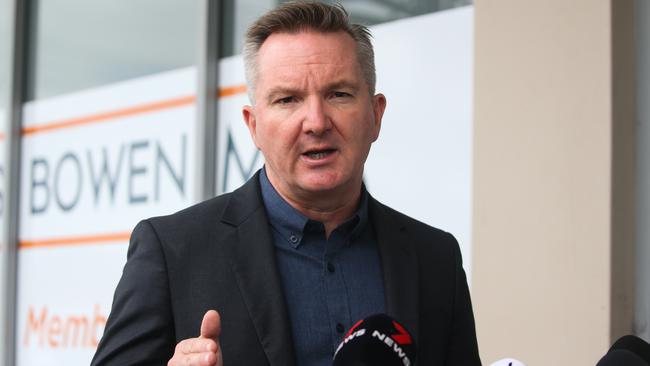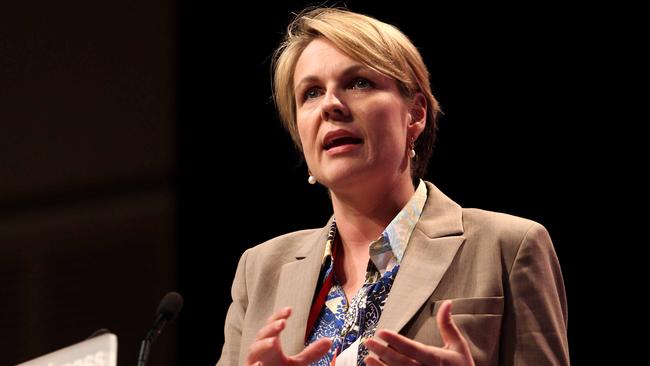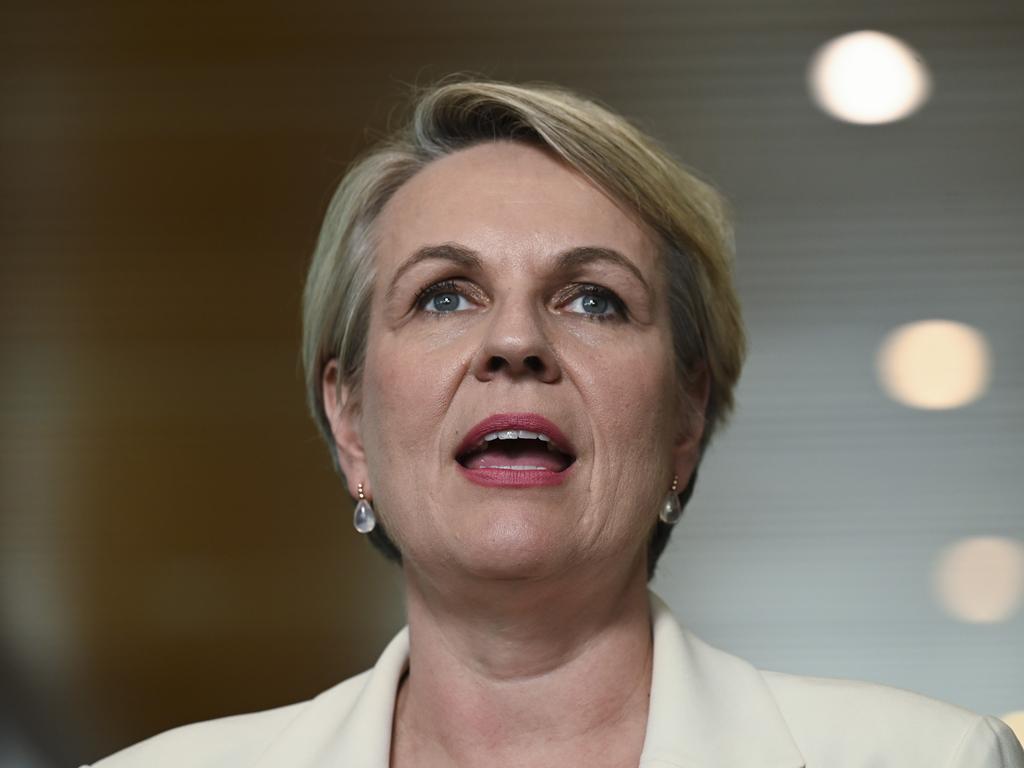The government has rejected an application from one of world’s largest utility companies
Flotation Energy was considered Victoria’s second most advanced offshore wind project but the federal government has stunned many by preliminarily rejecting the project.
Business
Don't miss out on the headlines from Business. Followed categories will be added to My News.
Flotation Energy, backed by one of Japan’s largest companies and earmarked as a leading developer of offshore wind in Victoria, has been denied a development licence by the federal government.
The preliminary decision to not grant Flotation Energy a licence comes despite the venture being awarded major project status and allocated more than $2m by the Victorian government to kickstart the work.
Victoria has placed offshore wind at the centre of its plans to wean off coal, and has allocated $40m to three companies to begin work on projects.
Flotation Energy was awarded just over $2m for scoping studies and surveys, which it began late last year when it was awarded major project status by the federal Labor government, cementing its place as a leading developer.
Following those moves, Flotation Energy was widely regarded as Victoria’s second most advanced offshore wind project, after Star of the South. Major project status gives developers favourable access and assistance from Australian authorities.
Flotation Energy – based in Scotland, where it has already developed a smaller offshore wind project – further advanced its case for a licence when it was acquired by Japan’s largest electricity utility, Tokyo Electric Power Company (TEPCO), providing the developer with access to a large pool of development funding.

But in a decision that is likely to irritate Japan, one of Australia’s closest regional allies, Flotation Energy has been informed that it has been preliminarily rejected for a licence to develop in Victoria.
Japan last year voiced concerns about Australia’s energy policy, insisting the government’s perceived lack of commitment to gas amounted to Canberra “quietly quitting” the industry. Japan is one the largest buyers of Australian LNG.
Flotation Energy did not respond to requests for comment from The Australian. Would-be developers have signed nondisclosure agreements barring them from revealing details of discussions with regulators and the government.
A total of 24 projects were rejected in the preliminary decision after being deemed less “not as meritorious” as others.
That label has been described as ludicrous by some observers, given Flotation Energy has demonstrated it has experience developing offshore wind projects and access to significant capital – two criteria the National Offshore Petroleum Titles Administrator deemed vital in guidance issued to would-be developers in 2022.
Six projects have been preliminarily awarded a so-called feasibility licence and six more could be awarded the coveted prize if they are able to overcome boundary disputes with other developers.
Feasibility licences give projects exclusive rights over a region for seven years, which is critical for attracting investment.
“How can Flotation not be in the top 12? They have developed offshore wind and it has TEPCO as a backer. It is a ridiculous decision,” said one industry source.
It is not clear whether Flotation Energy could yet sway Australian authorities when a final decision is announced.
A spokesman for Energy and Climate Change Minister Chris Bowen said: “The department received 37 applications for offshore wind developments in the Gippsland zone, which is extremely encouraging.
“Based on the advice of the regulator, the minister has made preliminary decisions on feasibility licences but won’t be making any further comment until proponents have had the opportunity for feedback, in keeping with procedural fairness,” he said. If it cannot overturn the decision, Flotation is on course to be the first heavyweight casualty of an increasingly competitive battle to develop offshore wind in Victoria.
Some of the world’s largest renewable energy developers and local giants last year lodged applications to develop off the coast of Gippsland, moving to capitalise on Victoria’s plan to use the zero-emission energy source as a major replacement for coal.

The Victorian government in 2022 set a target of generating the equivalent of about 20 per cent of its energy needs from offshore wind within a decade. The target then doubles to 4GW by 2035 and 9GW by 2040. In all, Victoria sees potential for 13GW of offshore wind capacity by 2050, five times the current renewable generation in Victoria.
Victoria’s coastline is ideal for offshore wind. Winds are very strong and consistent by international standards, while a large area of shallow ocean less than 50m-60m deep is suitable for wind turbine platforms to be fixed to the seabed, a much more mature and cheaper technology than the floating turbines that have to be used in deeper waters.
Victoria’s plans, however, were dealt a blow this month when federal Environment Minister Tanya Plibersek vetoed a key pillar of Victoria’s offshore wind strategy, citing a “clearly unacceptable” risk to local wetlands at the port of Hastings.
The site was supposed to be an epicentre of the offshore wind industry in Victoria, but now the state will need to revise its plan and hope Ms Plibersek endorses the revised project.
The rejection has created a degree of uncertainty over the industry, which Victorian officials have tried to address. The Australian understands officials contacted the would-be developers to assure them that a timetable for much anticipated contracts-for-difference – the mechanism by which generators will earn revenue – will proceed next year as planned.
But officials continue to grapple with lingering problems, with boundary disputes over six projects still to be resolved.
Six “meritorious” projects must undergo a boundary dispute resolution process.
The Australian understands meetings on the issue are scheduled for late January, while developers have yet to be told which other projects they overlap with.





